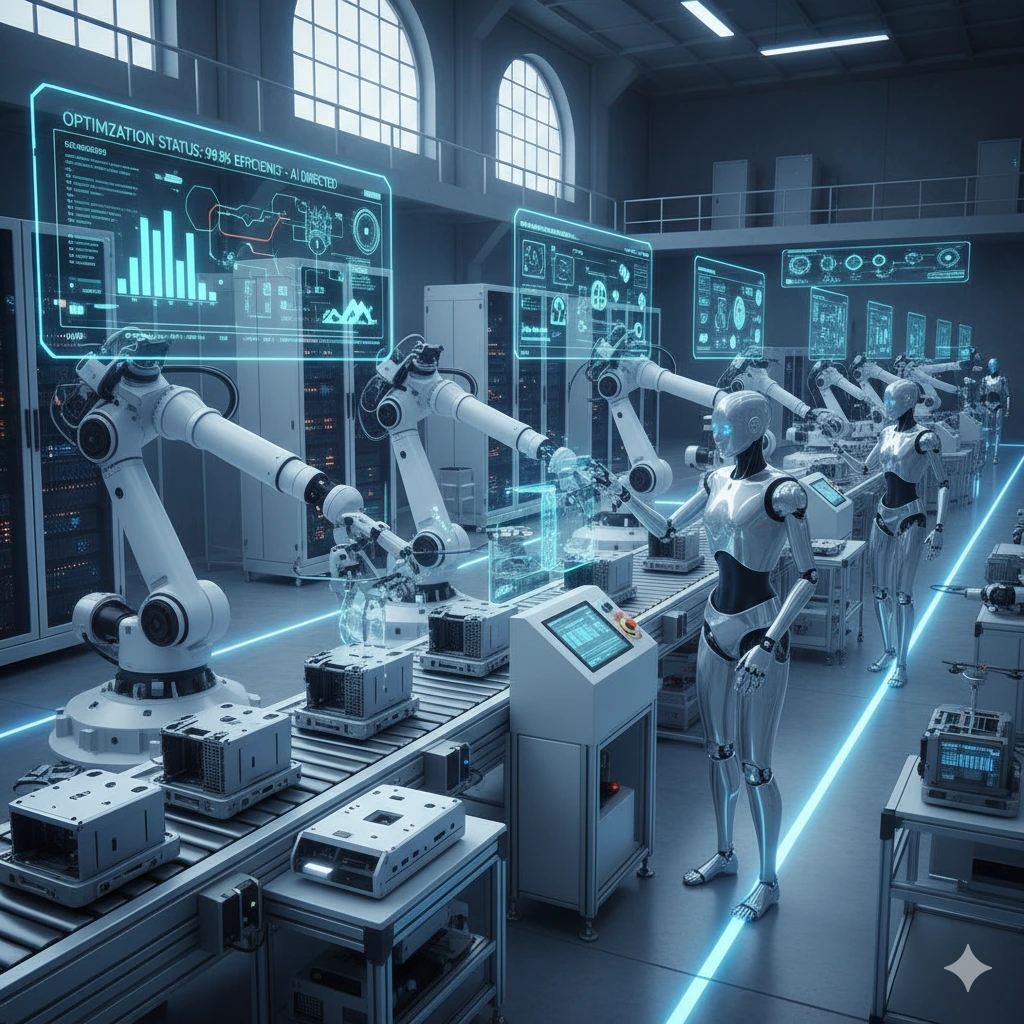 14 AUGUST 2025
14 AUGUST 2025
Transform Your Operations with AI Automation Agents
Businesses are constantly looking for ways to improve efficiency. AI automation agents are emerging as a powerful new tool to achieve this goal.
What are AI automation agents?
AI automation agents are intelligent agentic AI systems designed to handle complex tasks, make decisions, and interact with various software tools on their own.
They are not simple automation tools like scripts, as AI agents can understand the end goal, get contextual information about the task, access and interact with other tools, and execute the task while keeping business constraints in mind.
This guide will explain what agentic AI automation is. We will also explore how AI agents for business automation are transforming industries like manufacturing.
What is AI Agentic Automation?
Traditional automation follows a strict set of pre-programmed rules. Agentic AI process automation involves creating autonomous AI agents that can perceive their digital environment, reason about a goal, and take a series of actions to achieve it.
Think of an AI agent as a digital employee. You can assign it a complex objective, like "monitor inventory levels and reorder stock when it falls below a certain threshold." The agent will then independently access inventory software, check supplier websites, and place purchase orders without needing step-by-step instructions.
AI Agents Automation Solutions in Manufacturing
The manufacturing sector is a prime area for the application of AI agents. These intelligent systems can be deployed to manage and optimize various processes.
- Supply Chain Management: AI agents can monitor supply chains in real-time. They can track shipments, predict delays, and automatically find alternative suppliers to prevent disruptions.
- Production Planning: Agents can analyze production data, machine availability, and order backlogs. They can then create optimal production schedules to maximize output and minimize downtime.
- Quality Control: AI agents connected to camera systems can perform visual inspections on the production line. They can identify defects in products with a higher degree of accuracy than human inspectors.
- Predictive Maintenance: By analyzing data from machinery sensors, AI agents can predict when a piece of equipment is likely to fail. They can then automatically schedule maintenance to prevent costly breakdowns.
What is the Future of AI in Business Automation?
The future of AI in business is moving towards more autonomous, agentic systems. We will see teams of specialized AI agents working together to manage entire business functions. This will free up human employees from repetitive tasks and allow them to focus on more strategic and creative work.
Frequently Asked Questions (FAQs)
What is the difference between AI agents and agentic AI?
An AI agent is the software program itself, designed to perform tasks. Agentic AI is the broader concept or approach of using these autonomous agents to create intelligent, goal-oriented automation systems.
What are the 5 types of AI agents?
AI agents are often categorized by their intelligence and capabilities. The five common types are Simple Reflex Agents, Model-Based Reflex Agents, Goal-Based Agents, Utility-Based Agents, and Learning Agents.
Which AI tool is used for process automation in business?
There are many tools available. Robotic Process Automation (RPA) software like UiPath and Automation Anywhere are common for rule-based tasks. More advanced agentic AI process automation is being built on platforms using large language models from companies like OpenAI and Google.
Kavita Jha
Chief Executive Officer
Kavita has been adept at execution across start-ups since 2004. At KiKsAR Technologies, focusing on creating real life like shopping experiences for apparel and wearable accessories using AI, AR and 3D modeling.
